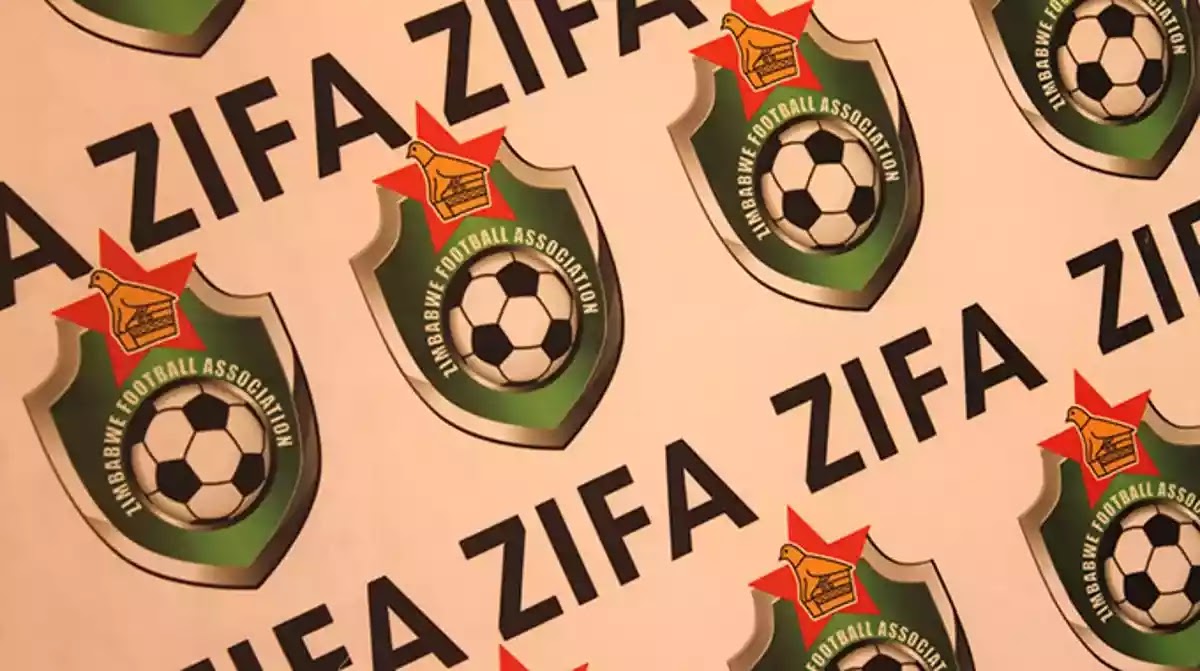TAWANDA CHARI
The world’s football governing body FIFA banned Zimbabwe from international matches in February 2022 and demanded an immediate reversal of the country’s Sports and Recreation Commission (SRC) suspension of the Felton Kamambo led Zimbabwe Football Association (ZIFA) board.
Which, of course, the SRC did not comply with.
 |
| Image - NewsDay |
FIFA acted after it perceived that the government in Harare tried to take control of the Zimbabwe Football Association, on the grounds it had failed to account for some funds; and that it had not cared to investigate alleged cases of sexual abuse toward female players by football officials.
The ban meant Zimbabwe had lost all its international football membership rights that include developmental programmes; as well as crucial trainings from within the country or from the continental football management body CAF.
The Zimbabwe football national team missed out on playing in the African Cup of Nations (AFCON) preliminaries in 2023. However, they were allowed to play in the qualifiers for the 2022 FIFA World Cup in Qatar.
And this was done within the ambit of FIFA’s legal prerogatives.
As per Section 5 of the FIFA Disciplinary Code, (FDC) Common rules for the judicial bodies; Article. 91 on the body’s independence in passing decisions states:
The judicial bodies of FIFA pass their decisions entirely independently; in particular, they shall not receive instructions from any other body.
The ban also barred football clubs from representing the country in continental competitions such as the CAF Champions League and CAF Confederations Cup.
And this was a terrible outcome for Bulawayo Chiefs who would have been better off participating in the CAF Confederations Cup. All the potential revenue lost …
It is unassailable that Kirsty Coventry and the SRC were aware of the consequences that came along with that dreadful decision. After all, the FIFA Statutes are public knowledge.
And below is a glimpse into such legal provisions pertaining to members’ rights:
FIFA Statutes
Article 12: Members’ rights
1. Members have the following rights:
(a) to take part in the Congress;
(b) to draw up proposals for inclusion in the agenda of the Congress;
c) to nominate candidates for the FIFA presidency;
(d) to take part in competitions organised by FIFA;
e) to take part in FIFA’s assistance and development programmes;
(f) to exercise all other rights arising from these Statutes and other regulations.
2. The exercise of these rights is subject to other provisions in these Statutes and the applicable regulations (emphasis added).
Was all of this worth it?
There is no simple answer. Perhaps ZIFA indeed needed to be held accountable and that’s a noble agenda.
However for the 16 months Zimbabwe had no membership rights, grassroots and junior football were at a standstill – and, regrettably, budding careers were lost. With the epitaphs and obituaries somewhat muted.
Both the 23 and under [age range] male and female players that were supposed to be available as feeders from that period for the senior teams aren’t available anymore.
That set the nation back at least four years of development. Ouch.
Women’s football was the hardest-hit because the missed internationals meant all the income they had from allowances after participating in FIFA events was lost. It’s a slippery slope. Female football generates less revenue in general, so one can only imagine how hard it must have been.
The absence of FIFA’s assistance and development programmes essentially meant that most developmental academies had limited options as to where they could go with their talents.
Football is not a forgiving sport in terms of time and age vs opportunity. Short careers and even shorter primes. Missing 16 months is not something an athlete would want at a time they have potentially the most opportunities.
What this means going forward
With FIFA having lifted its long-duree suspension on Zimbabwean football, an interim normalisation committee was appointed to manage the affairs of ZIFA until a new management team is elected. This also means Zimbabwe will participate in the African qualification tournament for the 2026 FIFA World Cup.
The normalization committee’s mandate includes “[reviewing] the ZIFA Statutes and Electoral Code to ensure their compliance with the FIFA Statutes and requirements, and to ensure their adoption by the ZIFA Congress”. The committee will be chaired by Lincoln Mutasa, with it’s mandate expected to expire by June 2024.
The major relief is that international football is back for Zimbabwe. Restoring glorious performances will be a Herculean task but one that can be achieved. By all definitive terms, such an arduous task will not be a stroll in the park.
The uplifting of the FIFA suspension also means that an outpour of a fresh lease of life has been extended for Zimbabwean football in terms of indispensable funds needed for developmental and training programs.
Zimbabwe’s group in the African qualification tournament for the 2026 World Cup is a “curious” affair – the Warriors were drawn in Group C alongside Benin, Rwanda, South Africa, Lesotho, and Nigeria.
Given the Warriors’ inactivity all these months, it is quite a stretch to predict how they will fare in the FIFA World Cup Qualifiers.
For now, there is a fair case eliciting some doses of jubilation: Zimbabwe are back in international football. And this is the chance to rebuild and flourish.
















.jpg)






.jpg)
0 Comments